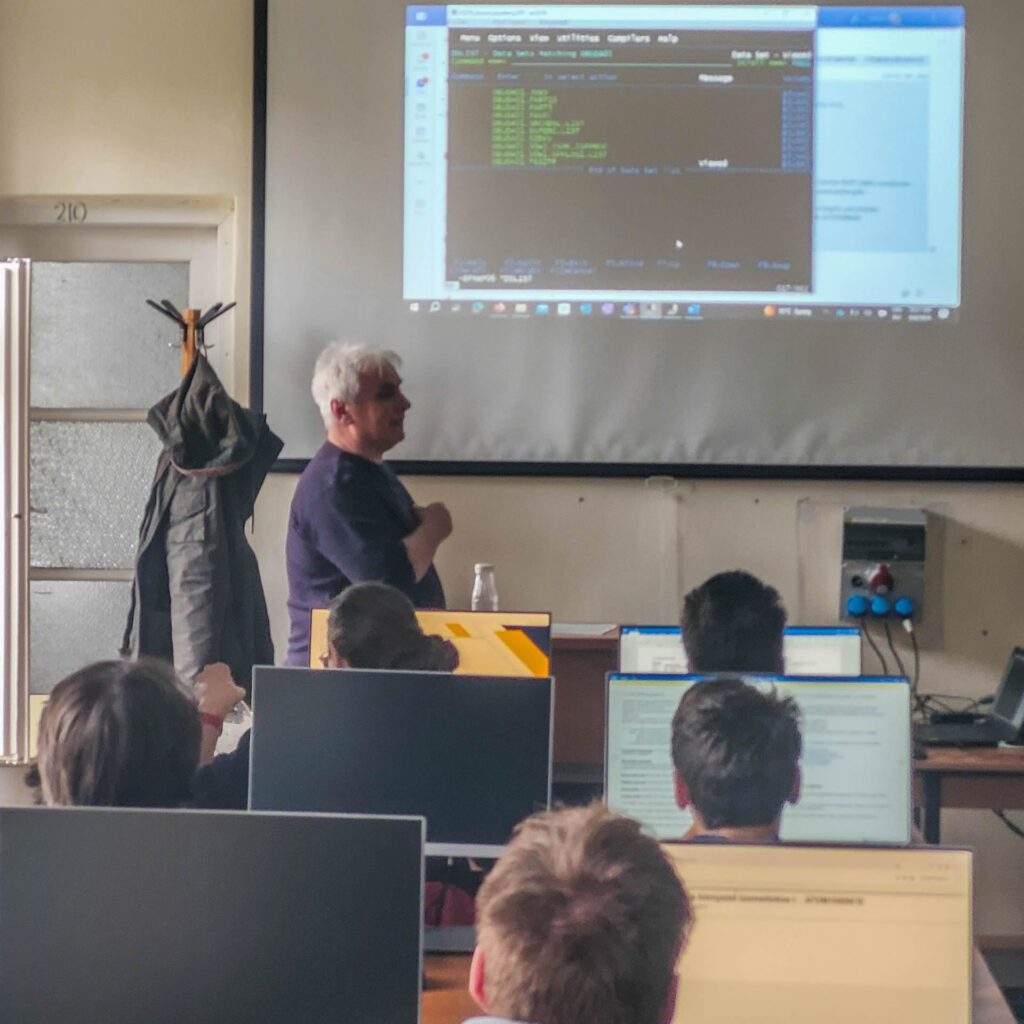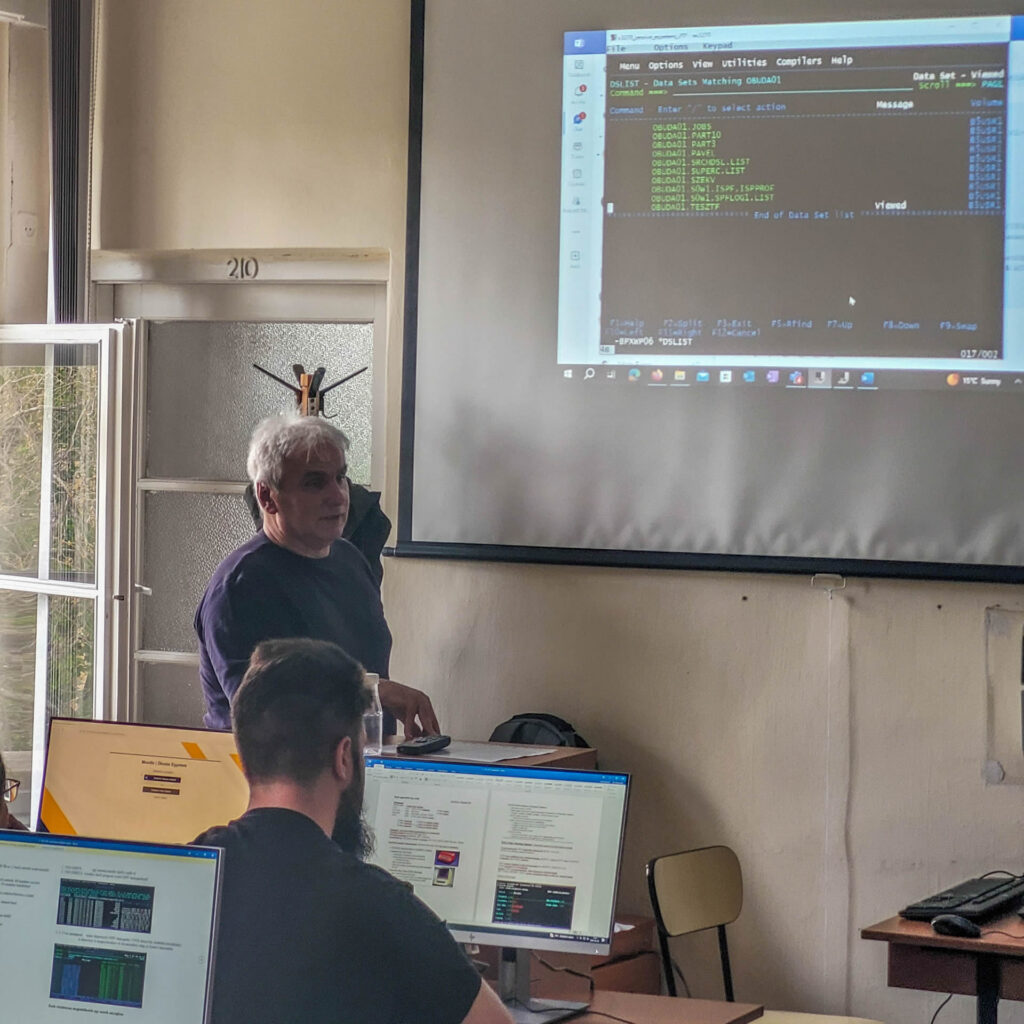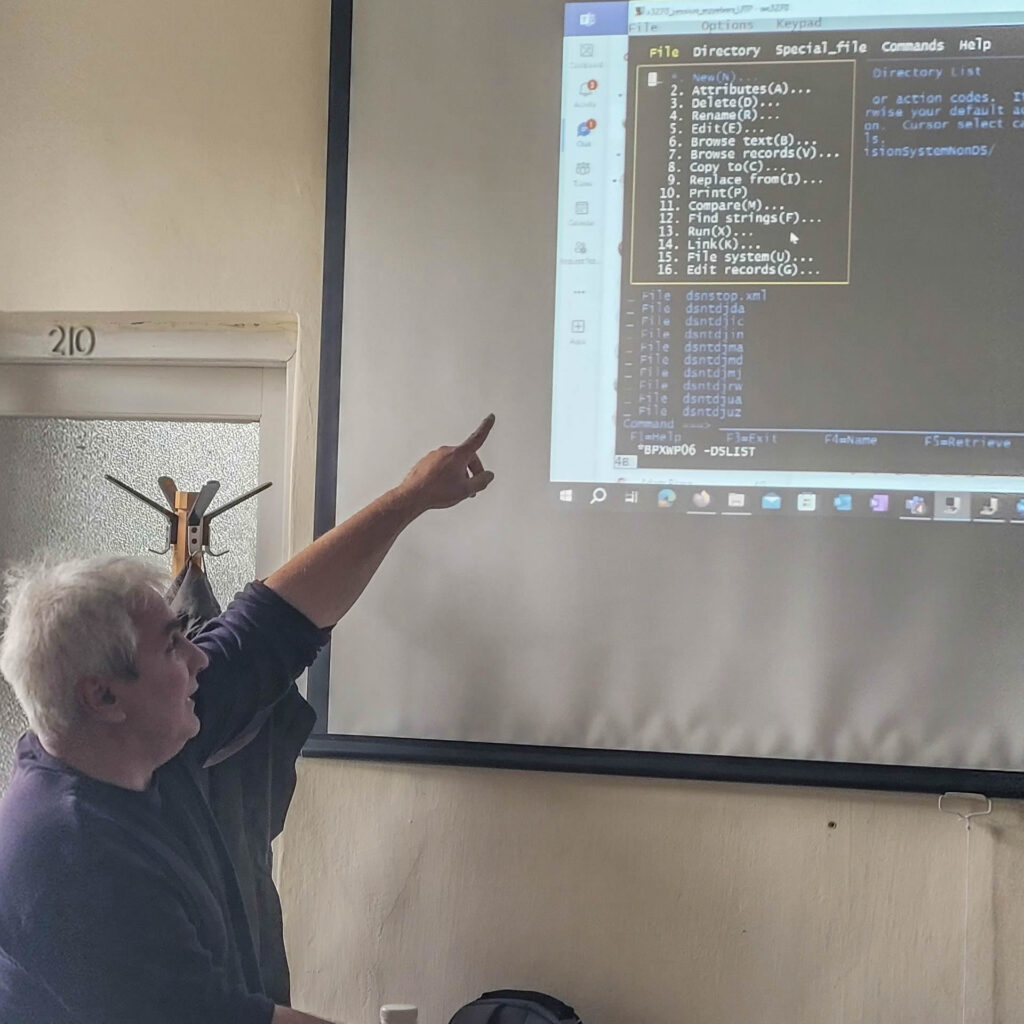We spoke to Pál Hargitai on a Thursday morning, who as an alumnus regularly returns to his alma mater to share his knowledge with the next generation. As an invited lecturer at Kyndryl Hungary Kft. (https://www.kyndryl.com), he gives lectures on Mainframe for computer engineering students to provide them with up-to-date information before they enter the job market.
“I’ve learned to learn, and with this roadmap, I can master anything.”
Interview with Paul Hargitai, Kyndryl Hungary Kft.
(Part 18 of the alumni interview series)



- Which company and in which position do you work?
I work at Kyndryl Hungary, as an IBM mainframe systems programmer.
- What was your motivation for choosing our university or its predecessor institutions?
Firstly, many of my relatives are teachers and I always felt that I had an affinity for explaining things and helping others learn. On the other hand, I wanted to let IT graduates know that there is a category of supercomputers, the IBM Mainframe, that many people have never even heard of. Thirdly, it drew me back to the walls where I had studied.
- Exactly which predecessor institution did you study at? Which degree(s) did you obtain?
I studied at the predecessor institution of Óbuda University, at the Kandó Kálmán Technical College of Electrical Engineering, Institute of Computer Engineering.
- Did you have a teacher you looked up to? What message/perspective/knowledge did he/she enrich you with?
Yes, his name was Tibor Milcsevics. He worked for IBM in Germany for many years. He told us a lot about his work there and we learned a lot about systems theory from him.
- Can you recall your first memory of our university?
Our opening ceremony, which coincided with the graduation of the correspondence students.
- Did the institution give you a life-long passport?
Yes, It did. I learned to learn, and with that I can master anything.
- Did you find time to have fun while you were studying? How were your student years at the university?
Besides studying, I played volleyball for the then NB-I VOLÁN SC. Apart from going to the cinema, the most fun I had was getting together with friends, most often in the “Kinizsi study room”, which was held in the nearby Kinizsi beer bar.
- Can you describe what you liked most about the university?
Friends meant a lot to me. The cohesion of our community is reflected in the fact that only two of us could not make it to our last anniversary meeting. College life at the institution has also been great and has shaped us.
- What opportunities do you see in higher education today?
When I was a student, I learned programming on paper. Today’s undergraduate education is becoming more and more sophisticated, with very strong hardware and lab facilities in universities. And all this is complemented by the fact that lecturers from companies using the latest technologies are also helping to teach. This is a very big opportunity.
- Do you have any advice for today’s youth on how to choose a university/career for themselves?
They should choose based on what their heart tells them, what they need. Don’t take the easy way out just to have a degree!
- Can you recall a memorable moment that ties you to our university?
It was a big surprise and a memorable moment of a lifetime when I was awarded the “EXCELLENT HONORARY” diploma as a senior.
- To what extent can you use what you have learned at our institution in your workplace?
I needed the basics that I had learnt back then, but there was also another very important factor, which I have already mentioned: I learnt to learn here.
- Did you dream as a child of this profession or did you have other ‘career dreams’?
Once, a very long time ago, I was given a book called Cybernetics, written by Oskar Kursa, and it was a trio of books by the same author on the foundations of computer science. At the time I only understood a few things from them, but I felt I had found my direction. Since then, I have often wondered whether it was coincidence that those things eventually led me down the path of computer science.
I think not.
- With a degree in hand, what were the first few steps you took to further your career?
It was easy. In my final year, I was already a scholarship holder at the Computer Technology Cooperative in Szeged, where I could have started working as a graduate. Interestingly, a “coincidence” intervened again when, seeing my results, a distant relative prevented me from continuing my life in Szeged at the last minute and contracted me to work on the construction and operation of the computer center of the VIDEOTON Radio Factory.
- Did you have a mentor to help you at the beginning of your career?
Yes, my relative definitely played a key role. I would also like to mention my parents, who supported me wholeheartedly in staying in Székesfehérvár and working at VIDEOTON, which had more opportunities, rather than in a job near my family.

